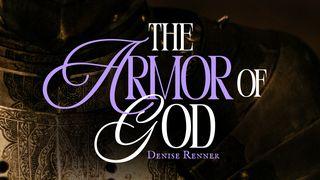Men After AbortionSample

Anger
Men may respond with anger to a wide array of problems. Anger can often be the automatic response when men haven’t taken the time to truly understand why they feel the way they feel. Men who are feeling depressed, sad, disrespected, fearful, tired, worthless, or empty can often express these emotions as anger. In fact, anger often hides other feelings we’d rather not or even don’t know how to face or feel. For example, we may be unwilling to admit to weakness, incompetence, or to say, “You hurt my feelings.” So, we get angry, raise our voices, and slam the table.
Anger can be described as “a blocked demand,” which is not the same as a blocked desire. An unmet desire produces disappointment. A blocked demand, however, normally produces an angry outburst because a demand is non-negotiable. It is not a request.
That may be the first problem. Do we have a right to demand compliance with our wills? Am I the Lord of the Manor? In the 12 Steps program, they call this, “His Majesty, the Baby.”
In confronting our anger, we want to identify the demand. What is it? Why do I need it? Releasing the demand can lessen the anger, but the challenge of relinquishing a non-negotiable demand is a difficult task and likely sets the stage for a continual struggle.
Anger may be expressed in a variety of ways, as we see in Genesis 2:25-3:12. Adam’s angry response to his own poor choices is on display as we see especially in Gen. 3:8-12.
A few initial observations:
- Adam & Eve both heard God coming and both of them hid from his presence.
- God called for Adam (he is held responsible despite Eve’s instigating/initiating role).
- “I was afraid because I was naked, and I hid myself” (3:10) is profoundly revealing.
While God continues his investigation to help Adam and Eve see what they actually did, Adam gets angry and launches a passive/aggressive shame-blame game against God and Eve. His earlier silence and passivity (3:1-6) flared up into an angry campaign of self-protection and self-justification. This angry response seems to be the result of Adam’s unflinching unwillingness to face the facts of his own role in the situation he helped cause.
The Bible is a mirror that reflects us back to ourselves (James 1:23). The Apostle Paul wrote, “…these things happened to them but are written down for examples to us” (1 Cor 10:6, 11). Adam provides a sad but accurate picture of how we men (and women) deal with and simultaneously avoid the traumas and problems we face.
As we confront the pain of abortion, bruised relationships, and loss, it’s helpful to reject passivity and aggression, so we may assertively examine ourselves and our imperfections with the realization that while Adam and Eve endured consequences for their choices, God forgave them, continued to love them, and restored them to their previous position of honor.
About this Plan

This seven-day Bible plan is designed to help men who are processing their abortion experience(s) and to find renewed identity and hope in God's love and forgiveness. This plan is written by Sean Quinlan, a Pastor and Male Client Advocate at Avail - a non-profit organization that exists to empower confident decisions and foster futures of hope for those facing unintended pregnancy, past and present.
More
We would like to thank Avail for providing this plan. For more information, please visit: https://www.availnyc.org/services-for-men?utm_source=youversion&utm_medium=referral&utm_content=men-english
Related Plans

The Armor of God

The Armor of God

The Power of Generosity: Sharing God’s Abundance

Meeting God in His Word

Grieving With Purpose: A Journey Through Loss

The Quiet Ambition

1 Timothy - a Brief Insight

Where Are You, God? 30 First Encounters With God

Praying for the Global Work of Bible Translation
